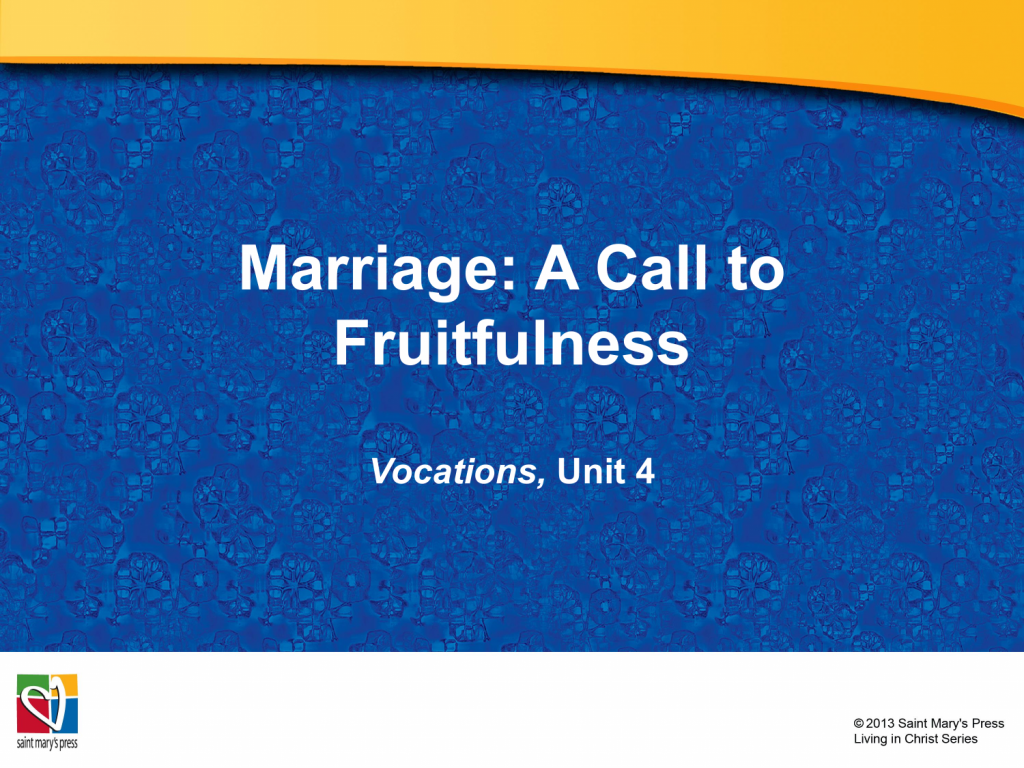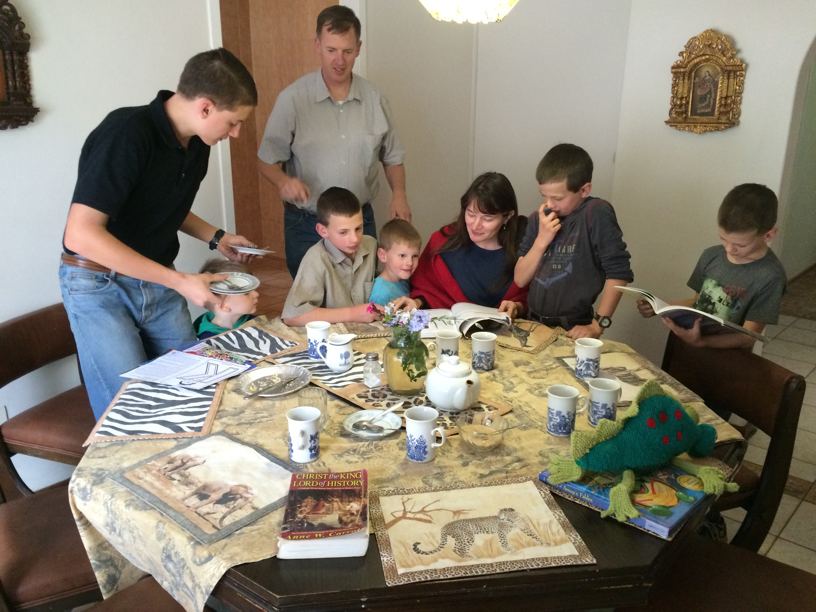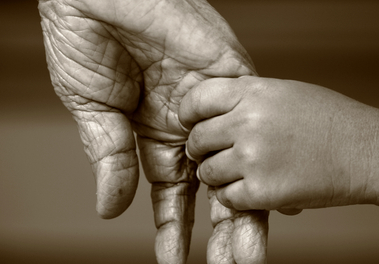During this month of February with the theme “Love gives Life” we’ve explored lifegiving in the World as a Family of Families and the context of animal procreation as well as a spirituality of life-giving in human marriage. This week life-giving will come more down to earth with a consideration of reproductive health or call it fruitfulness, in women and men too.

In his document Amoris Laetitia Pope Francis heads this chapter “Love made Fruitful” a much more attractive description than the terms “reproduction” or “fertility.” Fruitfulness is clearly one of the most important aspects of marriage and, as is well known, it happens too often outside of marriage too. However if sexuality is properly understood and accepted, even by many married couples, it could greatly enrich their lives. Pope Francis writes, “According to the order of creation, conjugal love between a man and a woman and their transmission of life are ordered to each other. Thus the Creator made man and woman share in the work of his creation and at the same time made them instruments of his love, entrusting to them responsibility for the future of mankind, through the transmission of human life. AL 81. The Church therefore teaches that the two aspects, couple love and their fruitfulness belong together and should not be separated.

He continues, “Love always gives life. Conjugal love does not end with the couple. The couple in giving themselves to one another, give not just themselves but also the reality of children, who are a living reflection of their love, a permanent sign of their unity and a living and inseparable synthesis of their being a father and a mother. AL 165. Fertility is a gift, just as a child is a gift from God to be celebrated and enjoyed. A couple’s overall sexuality can be one of the greatest joys in their life together. The knowledge that this particular act resulted in this particular child of ours, can be seen as a great treasure. However there are other cases where an unplanned pregnancy can be very traumatic too. Pregnancy resulting from rape, even marital rape, or pregnancy in teenagers and at times in older women may not be welcomed as a gift. Again Pope Francis speaks wisely, “if a child comes into this world in unwanted circumstances, the parents and other members of the family must do everything possible to accept that child as a gift from God and assume the responsibility of accepting him or her with openness and affection so that the child never has to feel that he or she is a mistake or worthless or abandoned. AL 166. His challenging statement “large families are a joy for the Church,” is followed by stating the importance of “responsible parenthood” which does not mean unlimited procreation but the empowering of the couple to use their “inviolable liberty wisely and responsibly, taking into account their social reality, personal circumstances and legitimate desires.” AL167
Fruitfulness does not carry the same kind of message as fertility, a medical, more technical term and a very important aspect in marriage and in practicing responsible parenthood. Fertility awareness is important from an early age. Male and female fertility starts at puberty as the ability of both to procreate, achieve a pregnancy and bear a child. Teenagers should not be sexually active, but many are, and should know and understand their bodies. Males are fertile at all times while females only at certain times during their menstrual cycle. This is a natural process, resulting from hormonal changes in the body. The fertility cycle is now well understood ,as it has been scientifically studied for many years and the Church teaches that couples should know and work with this natural process in planning to achieve or prevent a pregnancy. However much unwarranted skepticism remains about the safety of natural family planning methods and most couples, and individual men and women, use a form of artificial contraception. The term contraception itself indicates “against conception” and is the general social attitude towards sexuality.

Alongside this the number of couples experiencing infertility appears to be increasing over time. Many couples, desperate for their love to be fruitful and to have a child resort to infertility treatment which takes various forms, is not always successful and is also very costly. Couples do struggle over this in their own relationship, also with their beliefs and with their relationship with the Church. The Church teaches that any sexual act includes the potential of creation as husband and wife are united as one giving full expression of their love. Sexual acts should not separate the two aspects of couple love. Certain fertility treatments by their very nature separate these two aspects and are considered unethical and not morally acceptable.
There are complicated issues that married couples as well as singles and those with different sexual orientations have to deal with in their own lives as they strive to discover God’s plan for them. Can love be fruitful even when there is no fertility and the potential for children does not exist?
The perception still exists that the Catholic Church is anti-sex. This has never been so for the official church, but misguided clergy, religious and catechists may have held that belief. Even in our day the many cases of sexual abuse, particularly within the Church do little to correct such a perception. Often because the church promoted the full and deeper meaning and purpose of sex it has appeared to be a spoil—sport. This deeper understanding of family, of love, sex, sexuality and fruitfulness needs to be widely promoted, to couples, those preparing for marriage, youth and the wider community which is so greatly and painfully affected by abuse and gender based violence as well as a denial of the fruitfulness of all of creation. TR FAMILY WEEKLY E-NEWSLETTER 15 FEBRUARY 2023.
NOTE: Information on Natural Family Planning methods e.g. Billings is freely available, but ideally it should be taught for a clear understanding of a woman’s own body and successful practice.








Recent Comments